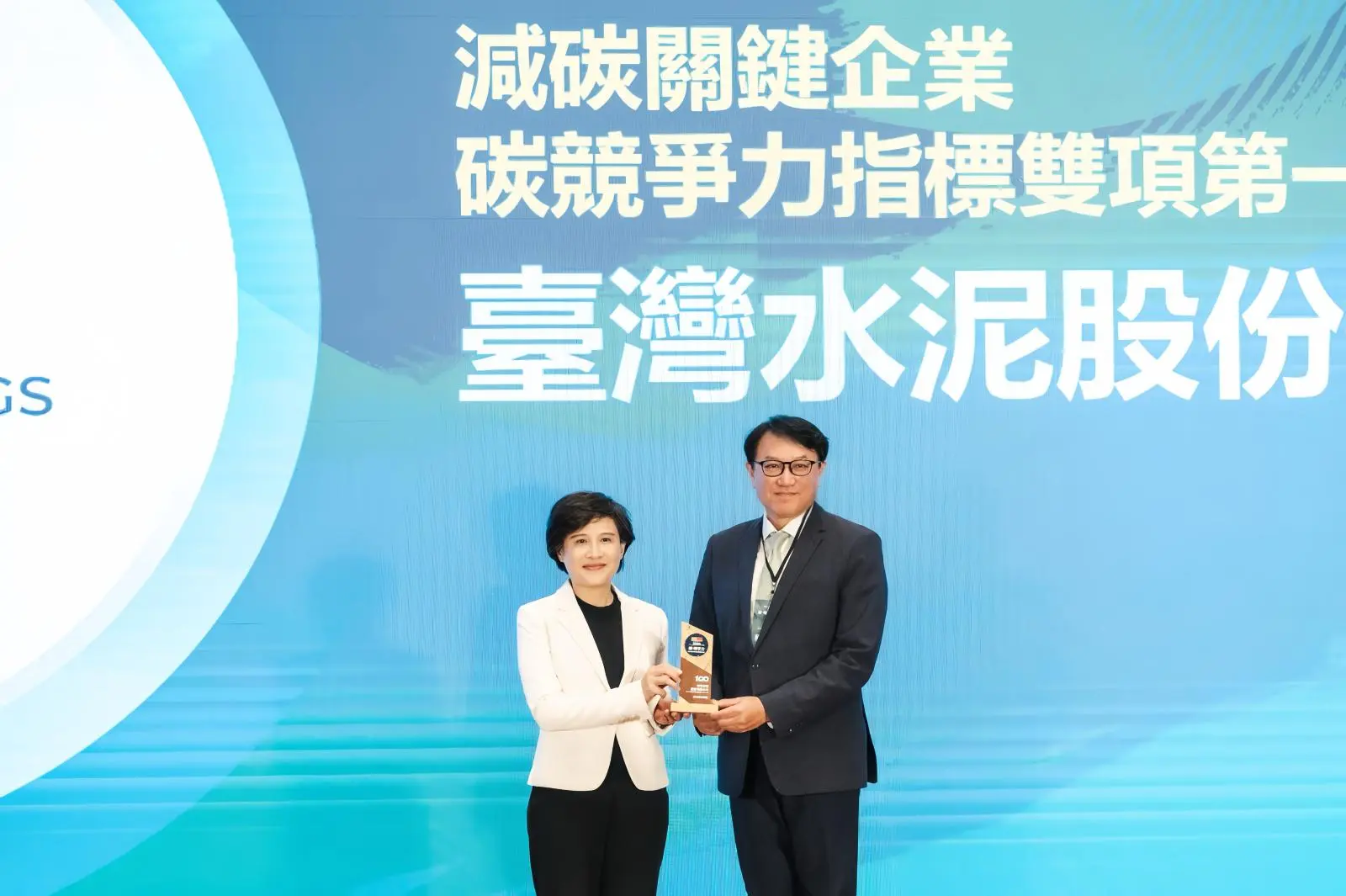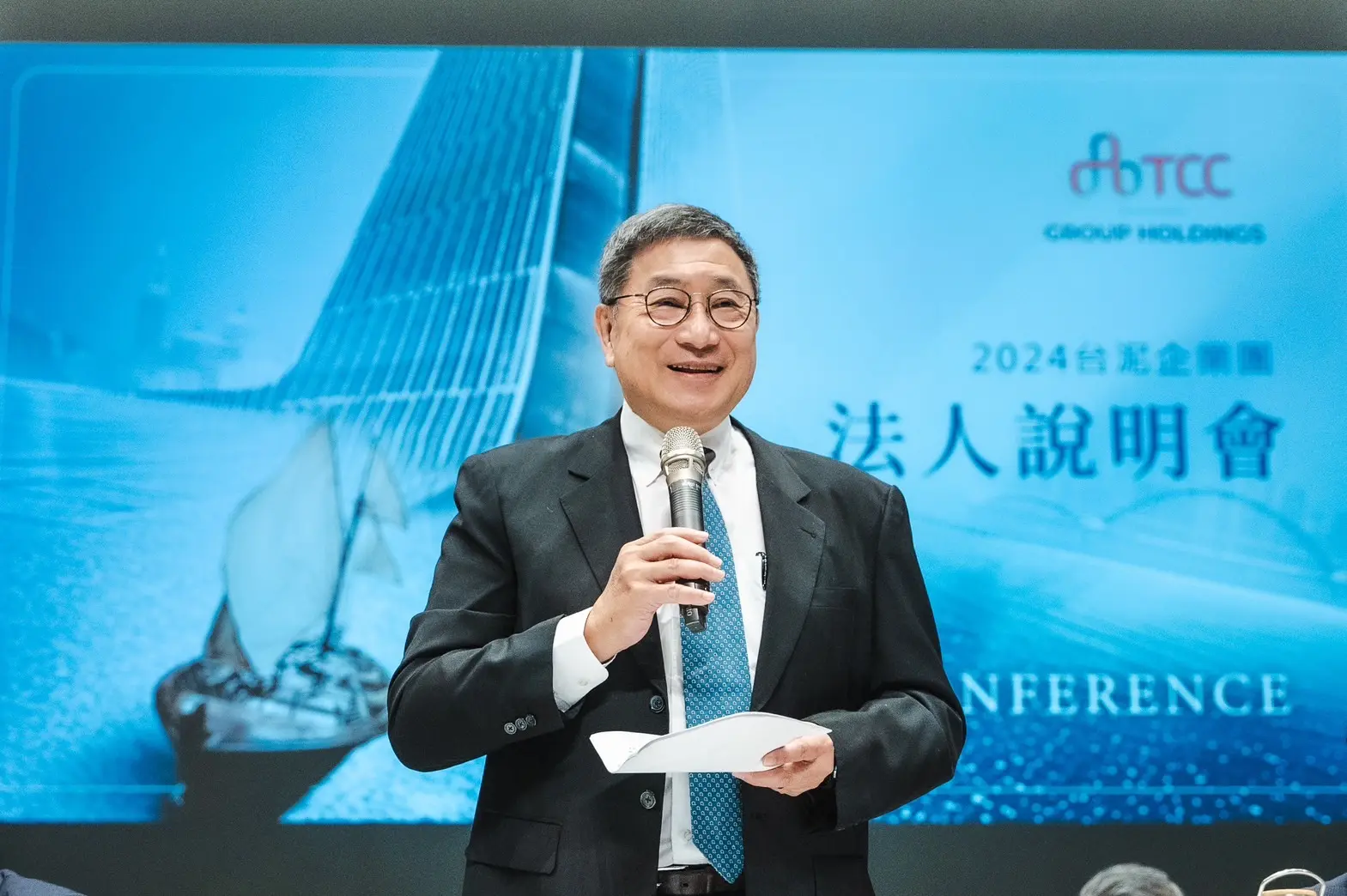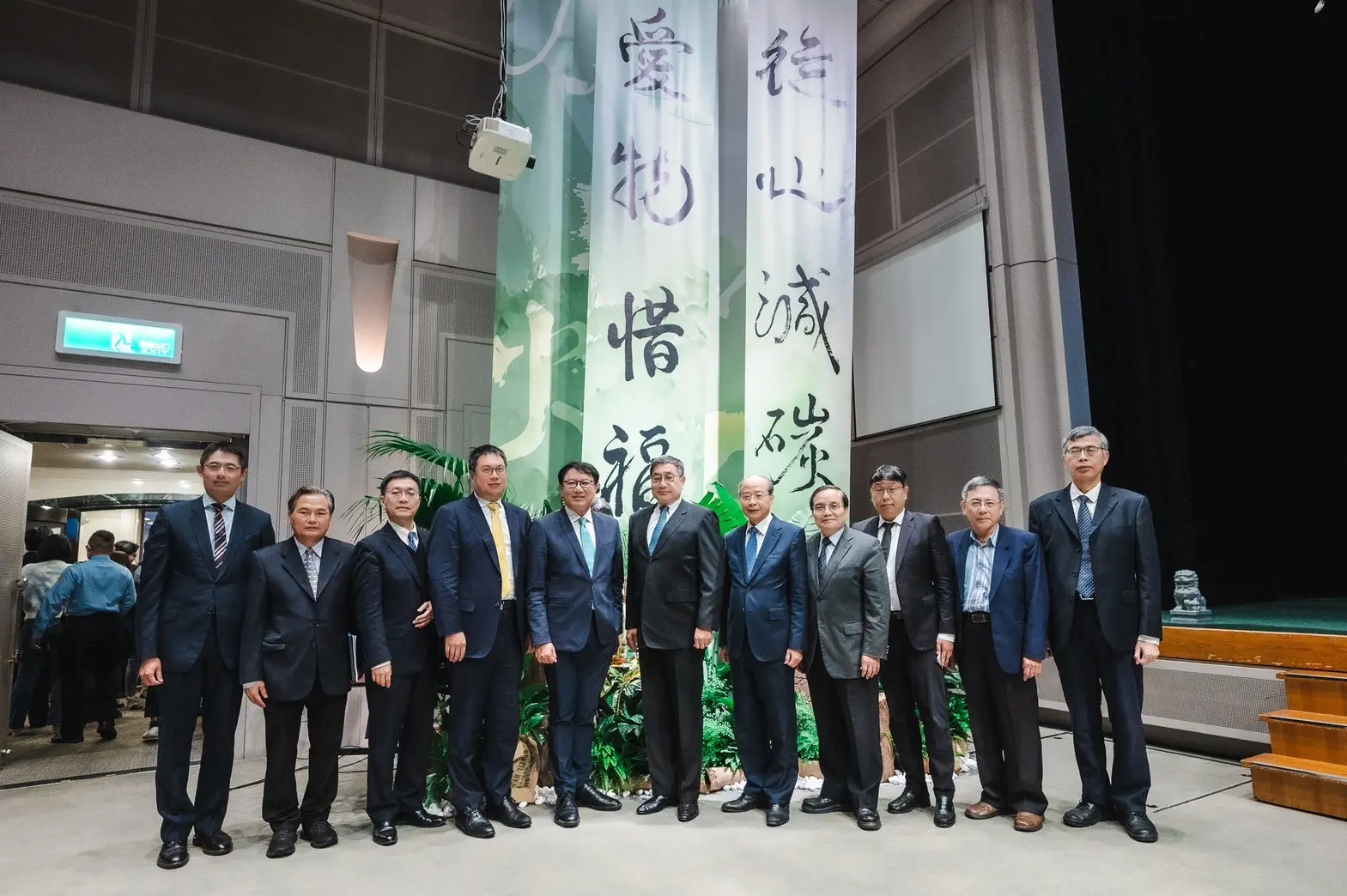TCC Tops "Top 100 Carbon Competitiveness" for Three Consecutive Years, Leads in Carbon Productivity Growth
TCC Tops "Top 100 Carbon Competitiveness" for Three Consecutive Years, Leads in Carbon Productivity Growth
2024.11.27
-
Copied

Business Weekly and the National Taiwan University Risk Center's Industry Climate Risk Research Team conducted an evaluation of over 900 listed companies in Taiwan to identify the "Top 100 Carbon Competitiveness" companies. TCC Group Holdings was ranked with "Double Wins" in the overall score for key carbon reduction enterprises and was also recognized as a key large-scale carbon reduction enterprise with annual revenue exceeding NT$100 billion. TCC has been the leading company in carbon productivity growth for three consecutive years. Only 33 companies have been listed for three consecutive years, and TCC is one of them.
President of TCC Group Holdings, Roman Cheng, attended the award ceremony on November 27th. He stated that since Chairman Nelson Chang took office in 2017, he has ushered in a new era for TCC, expanding its footprint across five continents, 11 industries, and 13 countries. Chairman Chang has called on TCC's 16,000 employees from 50 nationalities worldwide to reduce carbon emissions from the heart and cherish resources.
Cheng pointed out that over the past seven years, TCC's total assets have increased from NT$270 billion to NT$590 billion, and the company has cumulatively reduced carbon emissions by over 10 million tons. TCC has been exploring various ways to reduce carbon emissions globally, including using gasification furnaces in Hualien, Taiwan, to process waste and generate high-temperature gas, which is then used in cement kilns to replace coal. In Cameroon, Africa, TCC burns cocoa shells and calcines unwanted clay to produce cement raw materials, significantly reducing carbon dioxide emissions. Despite facing numerous challenges, TCC has proven that it is possible to reduce carbon emissions while continuing to develop a highly civilized society.
Chairman Nelson Chang mentioned at a recent investor conference that TCC recognized as early as 2017 that "carbon" would be the most critical competitive factor in the cement industry. Currently, TCC's carbon emission rate for cement produced in Taiwan is approximately 0.758, lower than the industry average of about 0.83 to 0.88. Following the SBTi 1.5-degree target, TCC aims to reduce the carbon emission rate of the cement plants in Taiwan and China by 27% from the baseline year to 0.552 by 2030. Additionally, he noted that while Taiwan imposes carbon fees on high-carbon-emission industries domestically, it does not levy such fees on imported high-carbon-emission products. He urged the government to expedite the planning of Taiwan's version of the Carbon Border Adjustment Mechanism (CBAM) to avoid lagging behind the European CBAM, and to protect Taiwan's cement market from potential harm by imported cement.
More Related Information
-
 2024.11.22Speech by Nelson An-Ping Chang for TCC Group Holdings’ Investor Conference
2024.11.22Speech by Nelson An-Ping Chang for TCC Group Holdings’ Investor Conference -
 2024.11.22Cement Remains Essential; TCC to Develop Low-Carbon Products Secures Port of Bristol Rights in November, Enters European Low-Carbon Cement Market
2024.11.22Cement Remains Essential; TCC to Develop Low-Carbon Products Secures Port of Bristol Rights in November, Enters European Low-Carbon Cement Market -
 2024.11.22TCC Group Holdings Target Energy Transition: Hoping Power Plant Decommission by 2040, Molicel Selected for AI BBU Supply Chain
2024.11.22TCC Group Holdings Target Energy Transition: Hoping Power Plant Decommission by 2040, Molicel Selected for AI BBU Supply Chain


